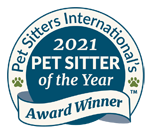Welcoming a dog into your home is more than just gaining a pet—it's adding a new member to your family. Choosing the right dog breed is crucial, especially when you have children. The ideal family dog should be gentle, patient, and friendly, not just with adults but with kids of all ages. Here are Dan’s Pet Cares top five dog breeds that are known for their compatibility with families, ensuring joyful and nurturing companionship.
1. Labrador Retriever
Labrador Retrievers consistently top the list of family-friendly dogs. Known for their loyalty and high-spirited nature, Labs make excellent companions. They are notably patient, which is a critical trait for households with children. Labs are also very intelligent and trainable, excelling in obedience and often used as service dogs due to their diligent and gentle nature.
Key Traits: Friendly, outgoing, high-energy.
Best For: Active families who love outdoor activities.
Training Tip: Start obedience training early with Labs, as their energy can be channeled into positive behaviors from a young age.
2. Golden Retriever
Much like their Labrador cousins, Golden Retrievers are beloved for their friendly and tolerant demeanor. They have a knack for making friends wherever they go. Goldens are devoted pets and are particularly good with children, showing both gentleness and patience. They are also incredibly eager to please, which makes training them a rewarding experience.
Key Traits: Patient, friendly, reliable.
Best For: Families looking for a loyal and loving pet.
Activity Idea: Golden Retrievers love to play fetch; regular games will keep them happy and healthy.
3. Beagle
The Beagle is a small to medium-sized dog known for its adorable face and curious nature. Beagles are excellent family pets due to their size and robust health. They are energetic and playful, always up for a game. Beagles are also very friendly with kids and make loyal companions due to their pack animal nature.
Key Traits: Curious, merry, and friendly.
Best For: Families with young children who enjoy playful antics.
Health Tip: Keep your Beagle's diet in check as they are prone to obesity if overfed.
4. Bulldog
Bulldogs are well-suited for houses where a laid-back pet is preferred. Despite their gruff appearance, Bulldogs are known to form strong, protective bonds with children. They are less energetic but highly affectionate and prefer lounging at home, which makes them excellent companions for movie nights or quiet indoor activities.
Key Traits: Calm, courageous, and affectionate.
Best For: Apartment living and less active households.
Care Advice: Bulldogs require regular cleaning of their facial wrinkles to prevent infections.
5. Boxer
Boxers are playful and energetic, making them ideal for families that are active and have plenty of love to give. They are known for their boundless energy and protective nature, which makes them excellent guardians for the kids. Boxers are also very intelligent and thrive on physical and mental stimulation.
Key Traits: Fun-loving, energetic, loyal.
Best For: Active families with older children.
Training Tip: Regular training and socialization are important for Boxers to manage their energy and strength positively.
Conclusion
Choosing the right dog breed involves considering your family’s lifestyle, housing arrangements, and energy levels. Each of the breeds listed above has been proven to be an excellent companion for families, each with its unique traits and care needs. When adopting, consider visiting local shelters or rescue groups where you may find a wonderful mixed-breed dog that can bring joy and companionship to your family.
Remember, while these breeds are known for their suitability with families, individual temperaments can vary. Always spend time with a dog before adopting to ensure it fits well with your family's dynamics.
Final Note: No matter which breed you choose, bringing a dog into your home is a long-term commitment that brings immense joy and requires responsible care. For more detailed information on each breed or help with training and care, consider consulting with a professional trainer or a veterinarian or read our glossary.










